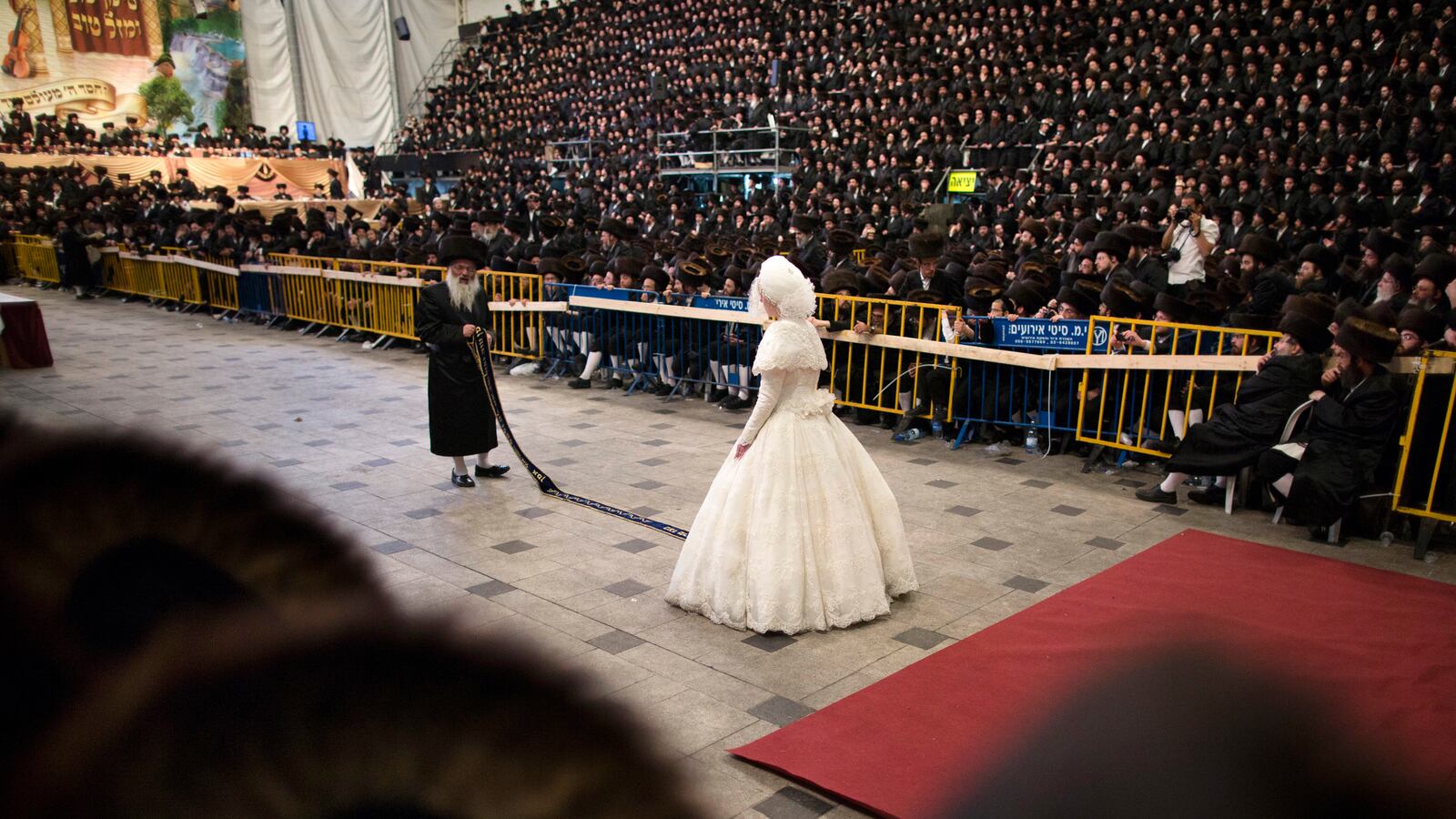One chief rabbi per Israeli town is better than two, a cabinet committee has decided. This is a step in the right direction, a sign that reducing the power of state-backed religion is finally on the Israeli political agenda. It’s also sign of a lack of political daring and imagination, since what we really need is no chief rabbis per town, no state rabbinic courts, and no clerical bureaucracy.
On Sunday, the ministerial committee on legislation decided that the government would back a bill to end the practice of having a Sephardi and an Ashkenazi chief rabbi for each city. The rationale is that Sephardi and Ashkenazi Jews are now sufficiently integrated that they don’t need separate rabbis. Besides, says Knesset Member Elazar Stern, the bill’s author, the move will save the taxpayers money. Chief rabbis of towns earn astronomic salaries and have life sinecures. The bill would institute 10-year terms and a mandatory retirement age.

For decades, Israeli politicians treated the state rabbinate and its monopoly on marriage and divorce as akin to bad weather, something to complain about but immune to legislation. Even when the “religious”—which is to say clericalist—parties were in the opposition, nothing changed. At last, frustration has overcome inertia, and it’s possible to round up votes for baby steps—no, tiny mouse steps—toward reform. Significantly, Stern is an Orthodox politician representing Hatnua, Tzipi Livni’s center-left party. The fight over state religion is partially a battle between observant Jews over the character of Judaism. But the reformers, Orthodox and secular, are still too timid to imagine the necessary revolution: a divorce between state and religion for the good of both.
A month ago, the Knesset passed a law that’s supposed to make it easier for Jews to marry. In the past, a couple intending to wed had to register with the religious council (a rabbinate-linked municipal body) where they lived. Now they can start the process anywhere in the country. So they can pick a town where the rabbinate is relatively moderate—for instance, where it allows them to have the ceremony performed by a rabbi from Tzohar, a group that tries to fit Orthodox ritual to the couple’s sensibilities.
But the law actually reinforces the state rabbinate’s monopoly on marriage. To satisfy Jewish Home, the clericalist party in the current coalition, the law imposes criminal penalties on anyone officiating at a wedding outside rabbinate auspices. That measure is aimed against a spreading subversion: Orthodox rabbis marrying couples who want a halakhic ceremony but also want to keep the state rabbinate out of their lives. (To make their marriage official, they go abroad for a civil ceremony.) In other words, the “reform” is meant to prevent Jews from practicing Judaism without state interference.
And none of the changes, proposed or passed, even touches the worst aspect of the current reality: the fact that a Jewish couple can only end their marriage through the state’s rabbinic courts.
Since I can’t possibly explain in this brief space how invidious that system is, I recommend the recent book Marriage and Divorce in the Jewish State, by lawyer Susan Weiss and journalist Netty Gross-Horowitz. The book is painful but essential reading, even for people who think they already know all the injustices. The authors follow the legal struggles of six women who were locked into marriages by husbands unwilling to divorce them—but even more so, by rabbinic courts that were both capricious and reactionary in their interpretations of halakhah. One woman received a writ of divorce from her husband after 12 years in court—only to have him successfully rescind the divorce and keep her chained to him for another seven years. Another lived with her violent husband for just three months; at the time the book was published, she’d waited 14 years for a divorce. A secular couple that deliberately married abroad to avoid the rabbinate discovered that the religious courts still had sole power over their divorce.
It’s not just that the state has empowered courts that follow religious law. Halakhah is always changing. State power enables and induces rabbinic courts to enact a particular kind of change: to choose the least forgiving and most misogynist legal sources from tradition, and read them through the lens of modern reactionary ideas. The judges don’t seek legitimacy from the wide Israeli public. They seek legitimacy before their peers in the ultra-Orthodox community—a state-subsidized subculture that defines Judaism as negation of humanistic values. The marriage of state and religion gives birth to human rights violations and to Judaism with an unnaturally repulsive face.
The answer, as laid out by Weiss and Gross-Horowitz, is straightforward: Institute civil divorce and marriage for all. “Privatize” rabbinic courts: “denude” them of legal powers and government budgets. Groups of rabbis and laypeople will be free to establish rabbinic courts, which will “flourish or not depending on the public’s demand for their services.” If competing courts interpret halakhah differently, all the better. Competition will encourage creativity. Lively disagreement over Judaism, not state-imposed unity, will make Israel more Jewish. In short, stop looking for small fixes for an unfixable system. We need a revolution.






